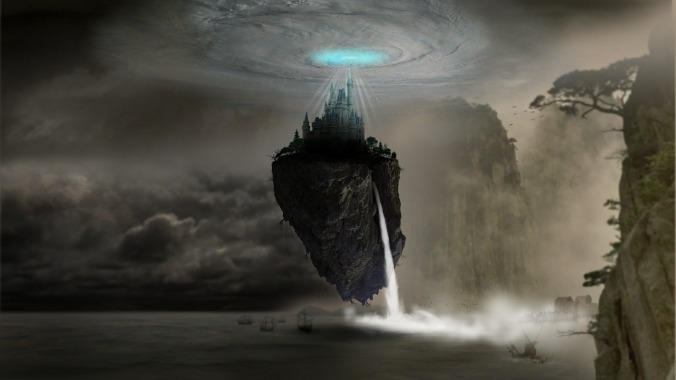
Alternate title for this post: The Monsters at Dusk sampler platter.
Why? Because, with short story collection Monsters at Dusk just 11 days away from release, I’d like to add something new to the menu. Today, I’d like to share the titles of all 10 stories. In addition, these titles come with a brief peek at each story.
If you like the sampler, don’t forget to order the main course on September 6th. Here we go!
Several Messages from Abby to God (Regarding Her Cat)
Dear Mr. Satan,
My name is Abby Thymes and my cat Pickles just died. I herd about you at Sunday skool and they said you’re kinda meen but also kinda magical I guess so I thought I’d say hi. I think Mr. God’s maybe taking a nap becuz he didn’t anser me.
Have you seen my cat Pickles down there? If you have could you send him back? If you do I would like you a lot and I would lissin to loud music with screeming and screechee gitars and stuff. My brother lissins to that stuff and he says it’s your favrit music. I’m sorry I don’t spell very good.
Anyway please send Pickles back. If not I’ll be really really mad at you.
Sincerealy,
Abby Thymes
Unbelievable
Anyway, once back at his dorm room, [Toby had] thrown on his clothes, some flip-flops, his backpack, whatever, and he’d dashed out the door. He smelled like his childhood dog Ambrose used to smell after rolling in the mud, but there was no time to care. If he was late again, the honorable professor Simon R. Briggs would fail him. And then probably murder him, just because he had tenure and he could get away with it.
We Remember
In my dream, I lie in bed beside you and I remember the outdoor concert where we first met, how hard it poured during the encore. I remember watching Troll 2 with you, our first B-movie, and laughing hard enough that cream soda gushed from my nose—still the only time it’s ever happened. I remember how hot it was the day we got married, how we all (especially me) sweat through our clothes. I remember the first time we kissed, and how my heartbeat never quite slowed around you since.
Large Coffee, Black
Some people flavor their coffee with sugar, milk, creamer, and the like. Osbourne truly hates those people.
A Good Fit in Penbluff City
Pren isn’t royalty, by the way. But that doesn’t mean she can’t feel like royalty. After all, she’s the closest thing to it these days. She’s a billionaire: first as a player, then as a landowner, now as a team owner in a sports league. And there’s no bigger sports league than the Greater Questing League.
Alice
Why would it do that? Never heard of an animal crying before, have you? That would require being sad, and being sad means you’ve got emotions. Animals only have about three: they’ve got scared, they’ve got hungry, and they’ve got horny—and don’t tell Gram I told you that last one. Animals don’t have the mental know-how to feel anything else.
Thespian: A Tale of Tragedy and Redemption in Three Acts
I was jobless, worthless, a base wretch and nothing more. My tyrannical landlady ousted me from my apartment, you see, just a day after my release from the theater company. The old bag cited three months without rental payment as motivation. She even cast me aside without so much as a “Good luck, and break a leg!”
Virus / Affliction / Condition / Curse
“Yeah, I worked on the werewolf Super Bowl commercial.” Giovanni Fressi frowns for a moment, then says, “Why? You wanna complain about it?”
Wings
“I can give you wings,” he said.
That was all. That and an enigmatic smile, a smile that might’ve been warm or predatory or indifferent. All he wanted was an answer. A yes.
I gave it to him.
The Megrim
When the first child vanished in the night, I called on the High Temple for aid.
Piebald the Cobbler laughed at me for doing it. “You’re always worrying, Pureman,” he said the following day as we trudged over fresh snow. “Too much for a young man like you. I’ve got a boy of my own. These children, they go wandering, they come back. Once this one starts missing his sweets and his bed, he’ll return.”
Yet a day passed without sign of the child.
[You can read even more from this one here.]
That’s all for now…
But you can buy the entire book on ebook or paperback September 6th. Look for it then!
Kyle A. Massa is the author of the novel Gerald Barkley Rocks and the forthcoming short story collection Monsters at Dusk. His stories have appeared in numerous online magazines, including Allegory, Chantwood, and Dark Fire Fiction. He lives somewhere in upstate New York with his wife and their two cats.











